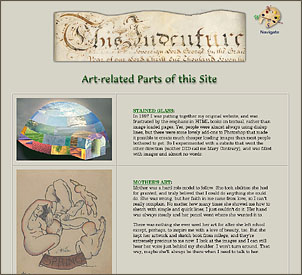audacious experiments in contrasts, the opposition of the pure and delicate tint and texture
of flesh to the blazing and gaudy colors of an Oriental umbrella and robe. Morot
is a son-in-law of the great painter J.L. Gerome.
The story of Phaedra is one of the gloomiest tragedies of Greek legend.
She was the daughter of Minos, King of Crete, and Pasiphae, the sister of Ariadne and
the second wife of Thesus. She had a stepson, Hippolytus by name. He failed in paying
due homage and worship to Venus, and the goddess, in revenge, resolved on
his destruction. To begin with, she inspired his stepmother with an intense and
unnatural passion for him, which led her to make advances which the youth indignantly rejected.
Phaedra than accused Hippolytus to his father, and Theseus, his jealousy aroused, demanded
his life from Neptune. Accordingly, Hippolytus was thrown from his chariot while driving on the
seashore, and dragged along the sands till he was dead. The artist shows the
unhappy woman, tormented by the memory of her crime, watched over in her chamber by her anxious and weary attendants.
It was in this scene of Racine's tragedy that the famous French actress, Rachel, achieved
her most magnificent tragic success upon the stage, and in it Mme. Sarah
Bernhardt reaches the apex of her art.
Alexandre Cabanel, who died in 1889, was born at
Montpellier in 1823. He began painting as a pupil of Picot, in the old classical manner,
but soon adopted a more modern and natural style of his own. After carrying off the
Prix de Rome in 1845, he took medal after medal, was made an Officer of the Legion of Honor
Back Forward
Chapter 6 Text
Alexandre Cabanel






![]() Copyright © 2007, Mary S. Van Deusen
Copyright © 2007, Mary S. Van Deusen